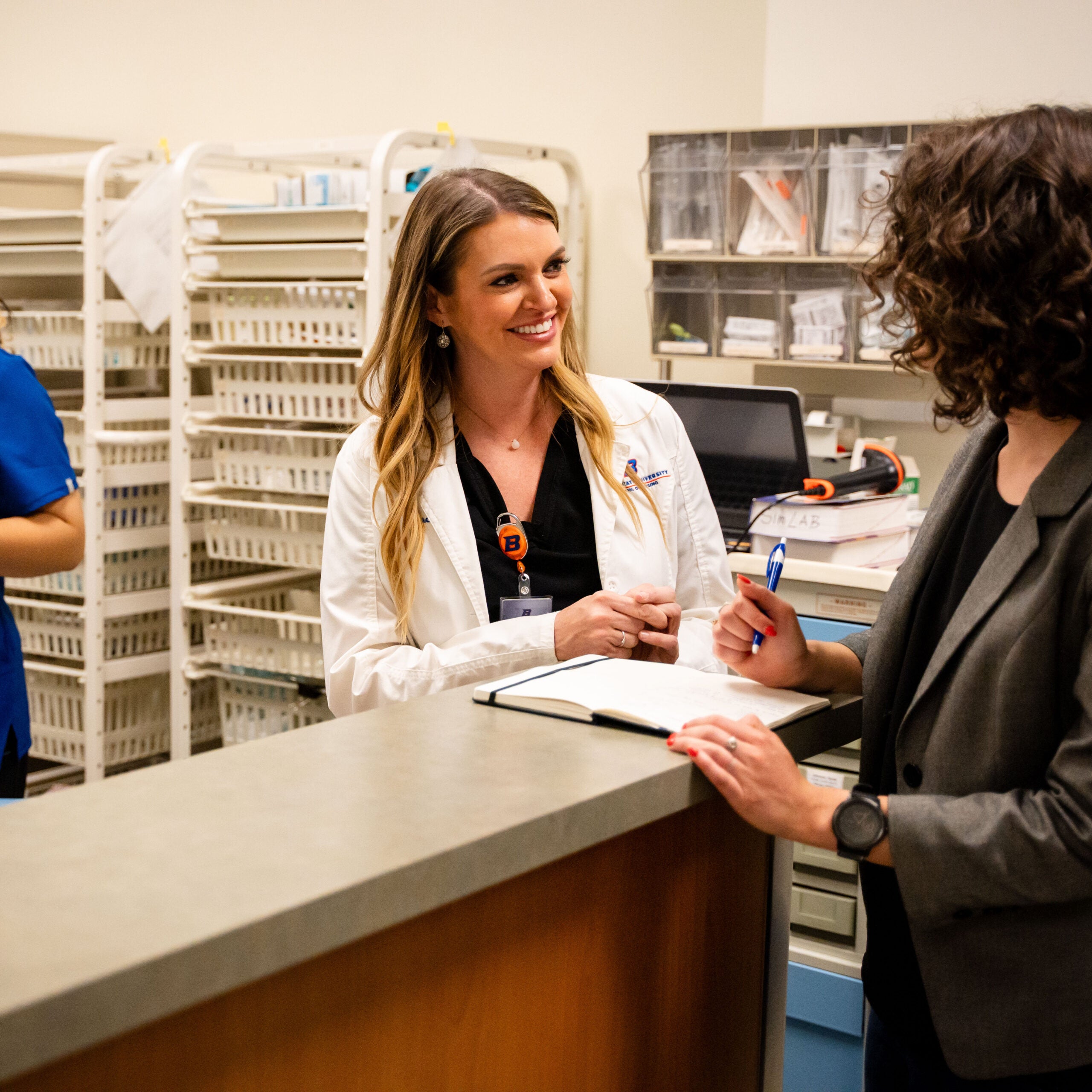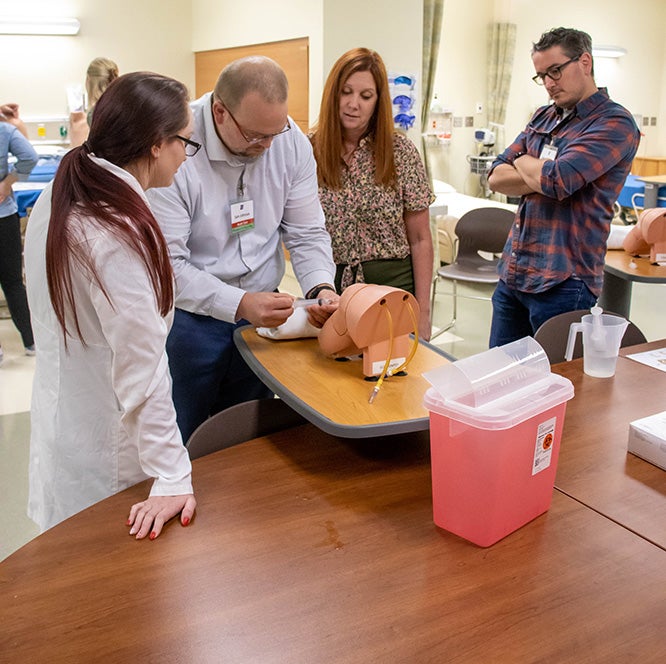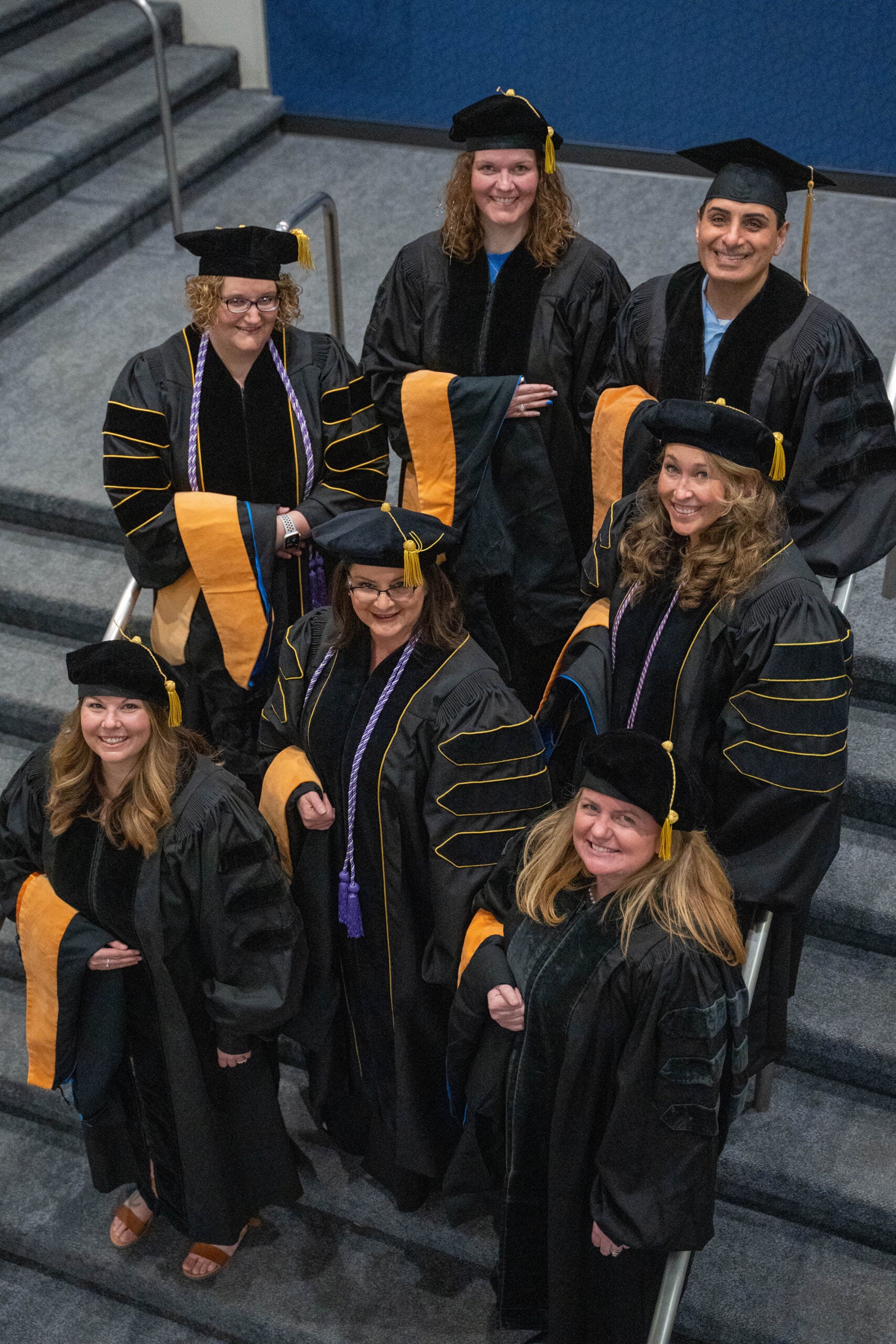Innovation isn’t always about blazing a new path where no one has gone before. Sometimes, it’s solving a problem that’s existed for so long, people doubt whether it will ever be solved. Sometimes, innovation is solving the unsolvable.
That’s exactly what the School of Nursing is aiming to do with the launch of its new Doctor of Nursing Practice (DNP) degree tracks.
Finding solutions for Idaho

While the healthcare provider shortage is a common problem across the nation, it’s particularly concerning for such a rural state like Idaho. Nurse practitioners are part of the solution. In Idaho they have full practice authority, meaning they don’t require a physician’s oversight to evaluate and diagnose patients, order and interpret diagnostic tests, and prescribe treatments.
Boise State’s new tracks accelerate the time it takes bachelor’s-prepared nurses to earn their doctoral degree and nurse practitioner education, allowing highly-skilled practitioners to enter the field sooner.
More options, more flexibility for students
Students will be able to enter the program holding a bachelor’s or master’s degree and earn their doctoral degree. This format of graduate education saves students time and money compared to a typical timeline to a doctorate degree.
In the new tracks, full-time bachelor’s-prepared students can earn their degree in as few as three years. Upon graduation, they will be fully prepared to take their nurse practitioner certification exam; Boise State alumni currently boast a 99% pass rate on their first attempt, scoring over 100 points higher than the national average.

The added DNP tracks are designed to give students more options and more flexibility in their education. They can choose the in-demand Family Nurse Practitioner (FNP) or the Adult Gerontology Acute Care Nurse Practitioner (AGNP) specialization.
“Boise State is answering the governor’s call to increase Idahoan’s access to primary care,” said Nicole Loos-Bartlett, current director of the Adult Gerontology Nurse Practitioner program. “The implementation of the FNP track will help to ensure Idahoans have greater access to primary and specialized care.”
For nurses who already hold an advanced practice degree – like nurse practitioners, anesthetists or midwives – the post-master’s track won’t include any nurse practitioner coursework.
The new tracks also represent the school’s efforts to keep pace with industry changes prompted by the National Organization of Nurse Practitioner Faculties (NONPF).
“In June 2022, NONPF released revised core competencies for nurse practitioner programs which are specific to preparing students at the doctoral level,” said Amy Spurlock, chief nurse administrator at the School of Nursing. “Achieving these competencies means graduates remain competitive in the job market as well as prepared to meet the health needs of their patients.”
Learn about the program
Courses in all three new tracks will be delivered primarily online with on-campus intensive sessions each year. Students can choose to study full or part-time with fall and spring semester starts.

Educating through a cohort model, the curriculum emphasizes innovation and transformation through evidence-based practices in any sphere of nursing. In addition to top-tier clinical skills, graduates will be equipped with knowledge of finance, information systems and quality and safety in healthcare to be able to advocate for effective policies and practices in the workplace.
“Graduates of Boise State’s nurse practitioner programs will be doctorally prepared and enabled to deliver high-quality and competent healthcare, which the community has often associated with Boise State graduates,” said Loos-Bartlett.
Priority applications are due July 1 to join the first cohort starting fall 2024.